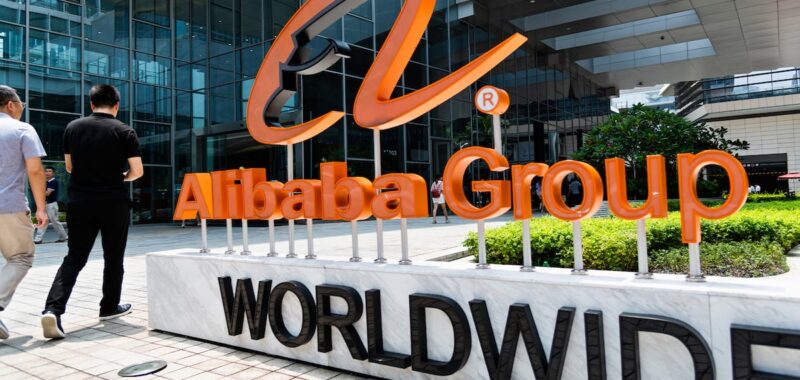
Alibaba Group Holding Ltd.âs quarterly revenue grew a disappointing 7 percent, reflecting a persistent Chinese consumer malaise that may dog the online commerce leaderâs big pivot toward AI.
The company reported sales of 236.5 billion yuan ($32.8 billion) for the March quarter, versus an average estimate of 237.9 billion yuan. Net income almost quadrupled, though that was partly because of gains from equity investments. Its shares fell more than 6 percent in pre-market trading.
Alibaba, a barometer of the Chinese consumer economy because of its sprawl, posted better-than-expected growth in domestic retail after Beijing issued a plethora of incentives to counter US tariffs. But the overall miss stood out after rivals Tencent Holdings Ltd. and JD.com Inc. both reported their fastest top-line expansions in years, stoking hopes of a Chinese tech sector revival after years of stagnation.
Alibaba itself had been counting on a bounceback in its online commerce business to support an ambitious post-DeepSeek bet on artificial intelligence.
Chief executive officer Eddie Wu and chairman Joseph Tsai â two of co-founder Jack Maâs most trusted lieutenants â took the helm in 2023 and are orchestrating Alibabaâs comeback from years of government scrutiny. Theyâve refocussed spending on building AI and e-commerce, while accelerating the unloading of non-core assets to bankroll AI investments and an international expansion.
The company has pledged more than 380 billion yuan toward AI infrastructure such as data centres over the next three years. Wu declared in February the companyâs primary objective is now attaining artificial general intelligence â putting it on par with the likes of OpenAI.
Alibaba has been releasing AI products at a frenetic pace since DeepSeekâs emergence on the global stage this year. Alibaba said its Qwen 3 flagship model, unveiled just last month, rivals DeepSeekâs performance on several fronts. On Wednesday, the company updated its video-generating model for the second time in a month.
But itâs facing intense competition from Chinese AI rivals including Baidu Inc. and Tencent. Globally, Tsai has warned of an AI bubble, cautioning that data centres are being built in the US without clear customers in mind.
What Bloomberg Intelligence Says
The continued uplift from narrower local services losses and jump in cloud earnings should have more than offset international digital commerceâs shortfalls for a second straight quarter. Profit from Taobao-Tmall group (TTG) probably also rose year-over-year as the firmâs push for higher gross merchandise value through the joint utilisation of tools within its ecosystem spurred higher customer management revenue. Yet cost hikes could have surpassed revenue gains to lower TTGâs 4Q adjusted Ebita margin from a year earlier.
– Catherine Lim and Trini Tan, analysts
The e-commerce business is also facing growing competition from ByteDance Ltd. and PDD Holdings Inc. In an effort to fend off JD.com and PDD, Alibaba said last week it will partner with the Instagram-like Xiaohongshu for Taobao and Tmall merchants to embed product links on the popular influencer platform.
Beyond China, Alibabaâs international commerce division grew revenue 22 percent â but that slowed from the previous quarter and also missed analystsâ projections.
For now, Beijing is helping keep the industry afloat, with incentives to buy everything from appliances to smartphones and cars. In May, policymakers announced a slew of stimulus measures including monetary policy easing.
By Claire Che and Luz Ding
Learn more:
Chinese E-Commerce Giantsâ Discounting Spree Hits Consumer Brands
Chinese e-commerce giants Alibaba and JD.com have faced increasing competition in recent years from low-cost platforms, such as PDD Holdingâs Pinduoduo and ByteDance-owned Douyin.

